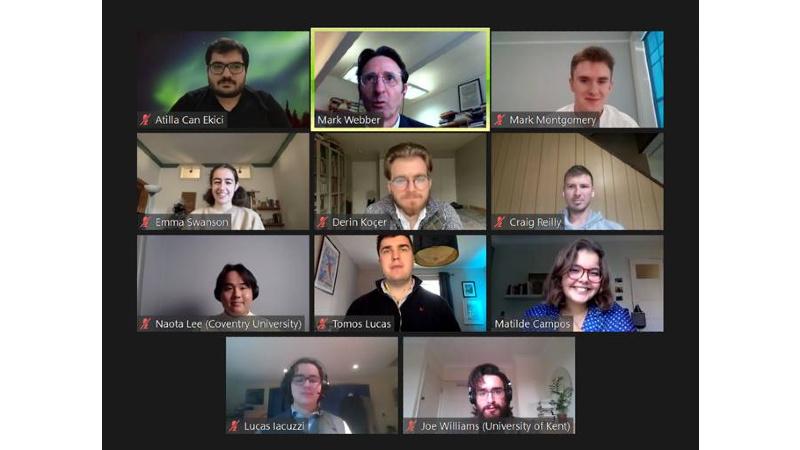Students contributed to a seminar hosted by the Foreign, Commonwealth and Development Office (FCDO) on the future of NATO’s defence and deterrence on 6 December.

Student representatives from 12 universities in the UK, Poland and Portugal attended the meeting which aimed to agree on a set of recommendations on the main challenges facing NATO over the next ten years, and how best to tackle these.
The recommendations will be forwarded to senior diplomats from all NATO member states, who are meeting in London on 13 December to discuss the updating of NATO’s Strategic Concept. The Strategic Concept sets out the purpose and strategy of NATO, and the FCDO was keen to engage with young people prior to the meeting to make sure that their perspectives and views are considered.
Participating universities included: University of Birmingham; Coventry University; University of Kent; Kings College London, University of Plymouth; Queens University Belfast; University of Sheffield; Staffordshire University; University of Stirling; Universidade Católica Portuguesa; Jagiellonian University in Poland, and University of Westminster.
Westminster was represented by Lucas Iacuzzi, BA Politics and International Relations, who said: “I had a great time meeting and working with other students to help represent young people's views and opinions on the challenges NATO faces. I truly think that the work we did does justice to the efforts of every student that contributed to the Westminster proposal. Just knowing that our presentation could have a real-world impact is really exciting and has helped fuel my interest in international relations.”
To prepare Westminster’s contribution, a workshop was held on 18 November, in which students discussed and agreed on the threats facing NATO today and in the next ten years.
Karlis Starks, BA Politics and International Relations, who was one of the students taking part in the workshop, said: "Attending the student meeting for NATO's new strategic concept gave me a new burst of motivation and optimism about the new upcoming generation of strategists and analysts. While answering the questions surrounding the next generation of threats and challenges this alliance of nations faces in the 21st century, the amount of insight and knowledge provided by my peers proved to me the importance of consulting with students about ideas for the future. Times have changed, and NATO needs to change with them."
Dr Magdalena Frennhoff Larsén, Assistant Head of School, added: “We are very pleased to be working with the Foreign, Commonwealth and Development Office on this initiative, which allows students to engage with peers from other universities, to think strategically, and to raise issues that matter to them. I was really impressed by the level of reflection and discussion among our Westminster students. And well done to Lucas for making sure that several of their recommendations made it into the final presentation to be given at the NATO meeting in London next week.”


